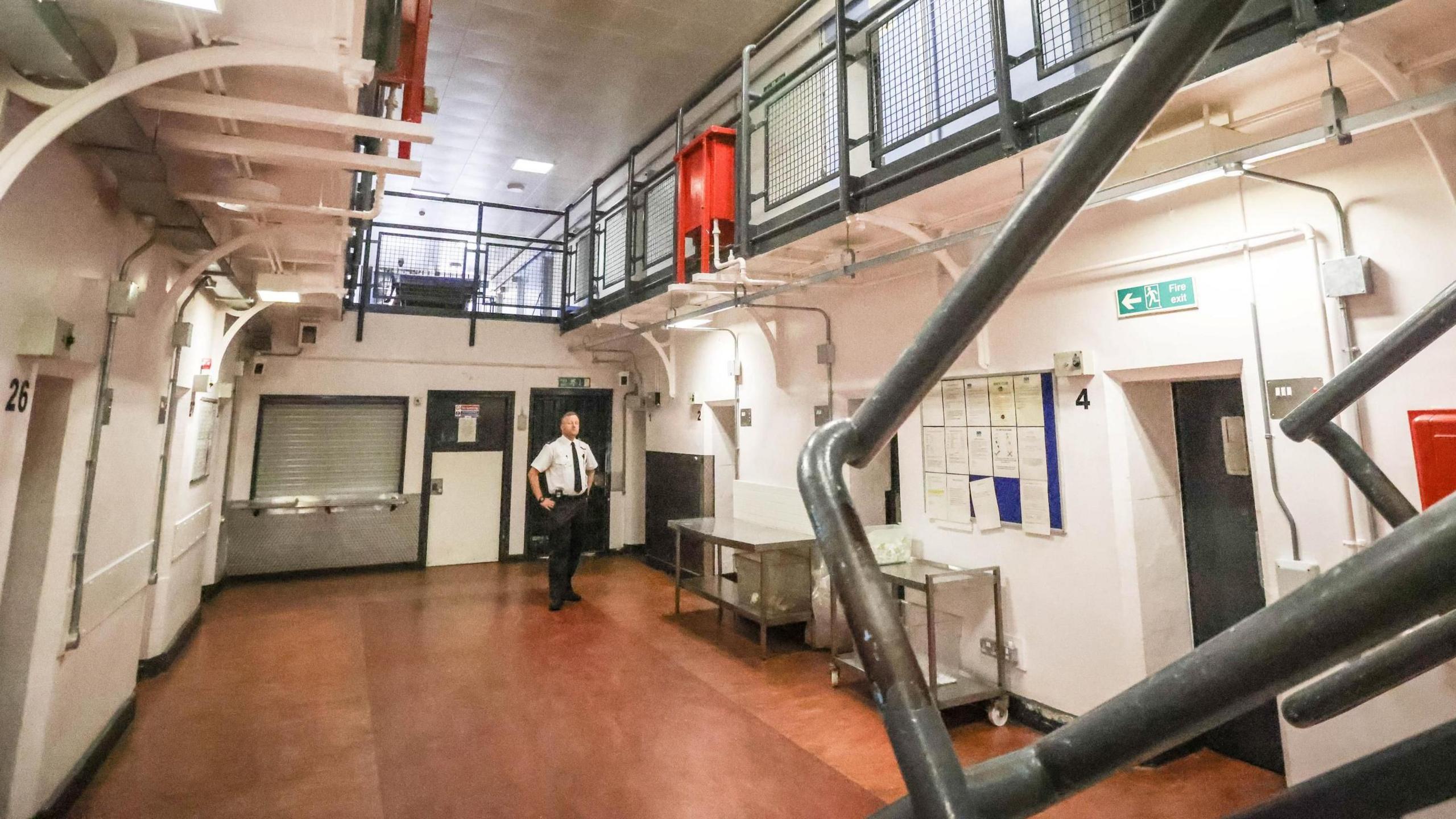Early release of prisoners will cause victims anxiety, admits minister
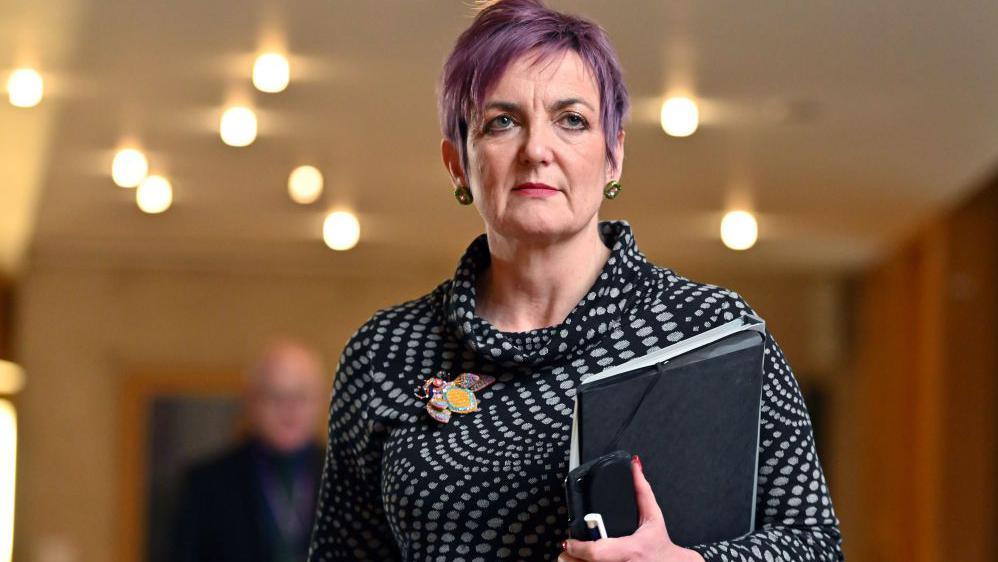
Angela Constance says victims will be able to get information about prisoner release dates
- Published
Scotland's justice secretary Angela Constance has conceded the early release of prisoners to tackle record overcrowding will cause anxiety for victims.
The emergency scheme which will see nearly 1,000 inmates freed from Scotland's jails has got under way - on the day the prison population reached another record high of 8,441.
More than 130 prisoners will go free in the first stage of a process that will continue until next April.
The justice secretary said the scheme was critical to ensure "the safety and wellbeing of those who work in prisons".
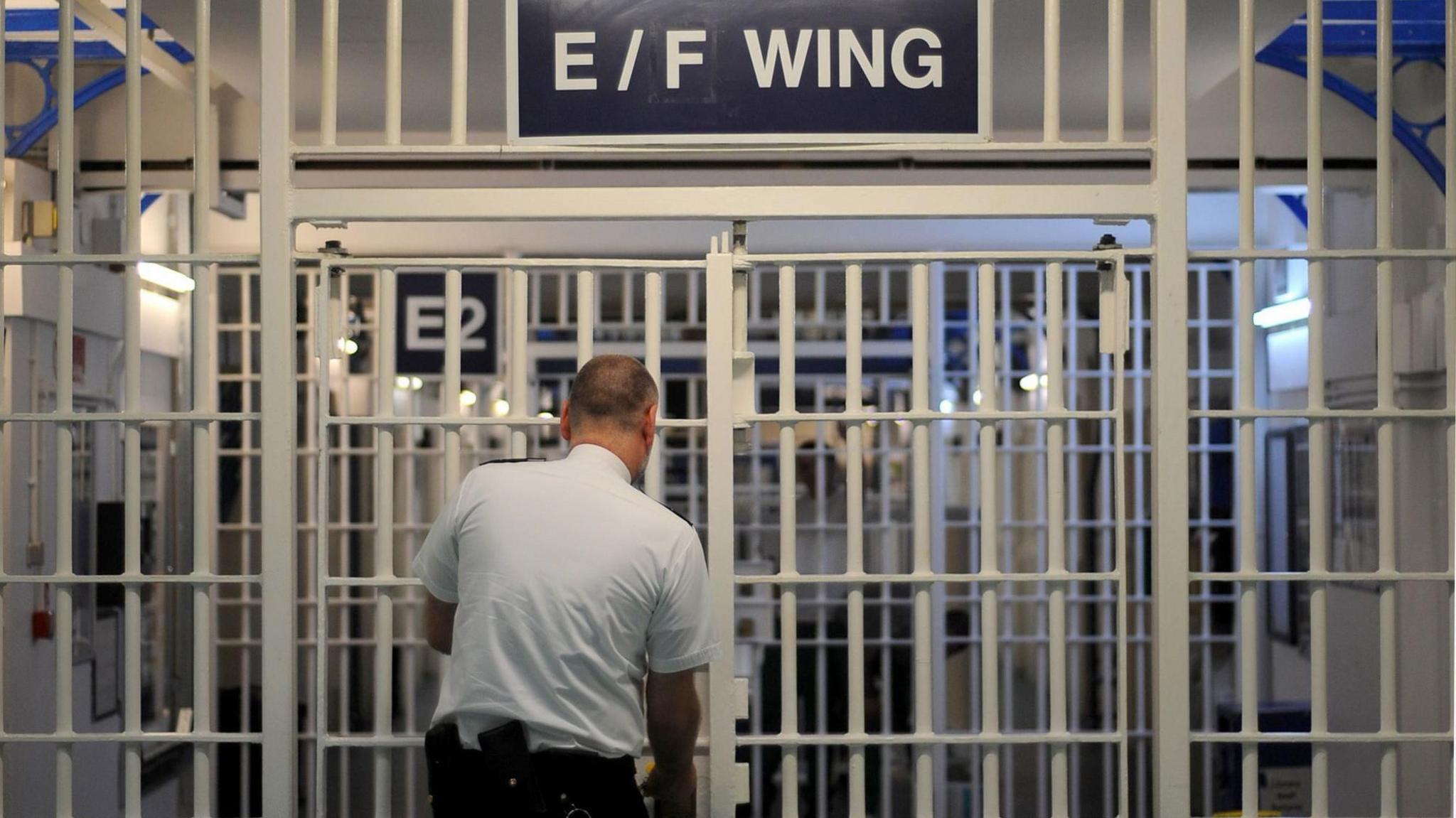
The first of up to 1,000 prisoners are set to be released early
Opposition parties say it is the result of mismanagement of the criminal justice system by SNP ministers.
Constance told the BBC's Good Morning Scotland programme: "I absolutely accept that early release will cause anxiety for some victims. There is no doubt about that.
"Those who are registered with the Victim Notification Scheme will be advised of a release date.
"For those who are not registered, there are other routes for them to get that information.
"They can contact the prison service directly or they can contact a charity or organisation such as Victim Support Scotland or Children First."
The latest releases come almost a week after MSPs voted by 66 to 51 to approve the plan.
Scotland's prison population reached a new record high of 8,431 last Wednesday and an estimated 990 inmates are scheduled to be released early in successive waves over the coming six months.
Only inmates serving sentences of less than four years will be eligible. Prisoners convicted of sex offences and domestic abuse will be excluded.
A total of 213 prisoners are eligible for early release in the first phase - but a "governors' veto" over safety issues means only 139 will go free this week.
Angela Constance said the overcrowding problem presented "a critical risk to the safety and wellbeing of those who work in prisons".
She added: "If we have more victims in our prisons, we will have more victims in our communities.
"So this is being done in a planned, orderly fashion."
The Scottish Conservatives described the launch of the scheme as "a dark day for public safety as yet more dangerous criminals are released back onto Scotland's streets under the SNP's watch".
The party's justice spokesman Liam Kerr said: "It's simply common sense that prisoners should serve their sentences in full.
"However, under the soft-touch SNP, criminals are shamefully getting a free pass yet again whilst victims are left in the dark."
'It's chaos in there'
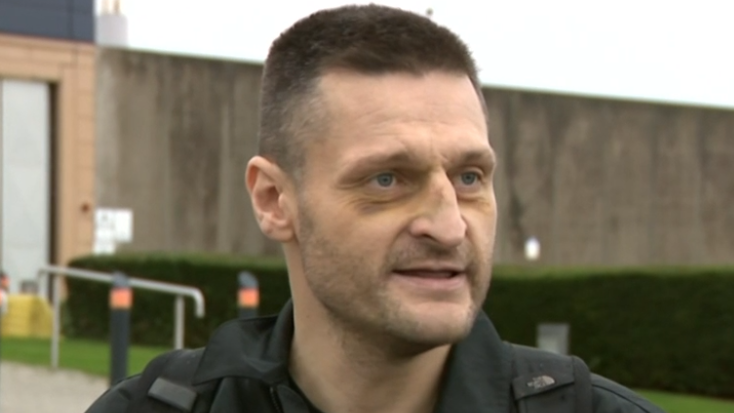
Newly released James Mee said overcrowding meant there were not enough things to keep prisoners occupied
James Mee, from Conon Bridge near Dingwall, was one of the first prisoners to leave HMP Edinburgh on day one of the new scheme.
He was sentenced to 10 months in August after racking up five drink or drug-driving offences and told BBC Scotland News of his relief at being out early.
"There are drugs everywhere (in prison)", he said.
"I've been assaulted many times in there. There aren't enough things for prisoners to do, it's so overcrowded."
It was a similar story outside HMP Barlinnie in Glasgow.
One former prisoner said he had been due to be released next year having been convicted of carrying a knife.
The man, who asked not to be identified, described conditions inside the 143-year-old prison as "terrible."
He added: "If one word can describe it in there, it's chaos."
'Holding people to account'
Community Justice Scotland (CJS), a publicly-funded independent advisory body, has renewed its call for more short-term prison sentences to be replaced by community service.
CJS chief executive Karyn McCluskey said: "We know that short sentences don't give people the time or stability to change and we see the same faces coming back through the door time and time again.
"Community sentences are tough, demanding and focused on change, holding people to account while connecting them to the things that actually stop offending: housing, treatment, employment and purpose."
How overcrowded are Scotland's prisons?
The prison population fluctuates daily but has repeatedly hit new highs in recent weeks, according to the Scottish Prison Service (SPS).
It reached a record 8,441 on the day of the latest early releases - and the continued rise comes despite hundreds of inmates having previously been freed to make more space.
More than 300 people, half of whom were serving sentences for violent crimes, were freed in February and March after prison bosses warned they could not take any more arrivals.
In addition to the record numbers inside Scotland's jails, the SPS said that more than 120 people on custodial sentences had recently been managed in the community through home detention curfews.
An SPS spokesperson said: "We have a prison population that is extremely complex and rising rapidly.
"We have developed plans for a careful and considered emergency early release, which is now being taken forward in close collaboration with national and community partners, across justice, health, social work and other sectors."
Scotland's prisons were designed to hold 7,805 inmates, meaning they are now accommodating more than 600 additional people - enough to fill another prison the size of HMP & YOI Grampian or HMP Shotts.
The Prisoners (Early Release) Scotland Act 2025 came into law earlier this year.
The act changed the point of release for all eligible short-term prisoners from 50% to 40% of their sentence.
That provided some relief for prisons in the face of overcrowding but populations have since continued to rise.
Related topics
- Published27 October
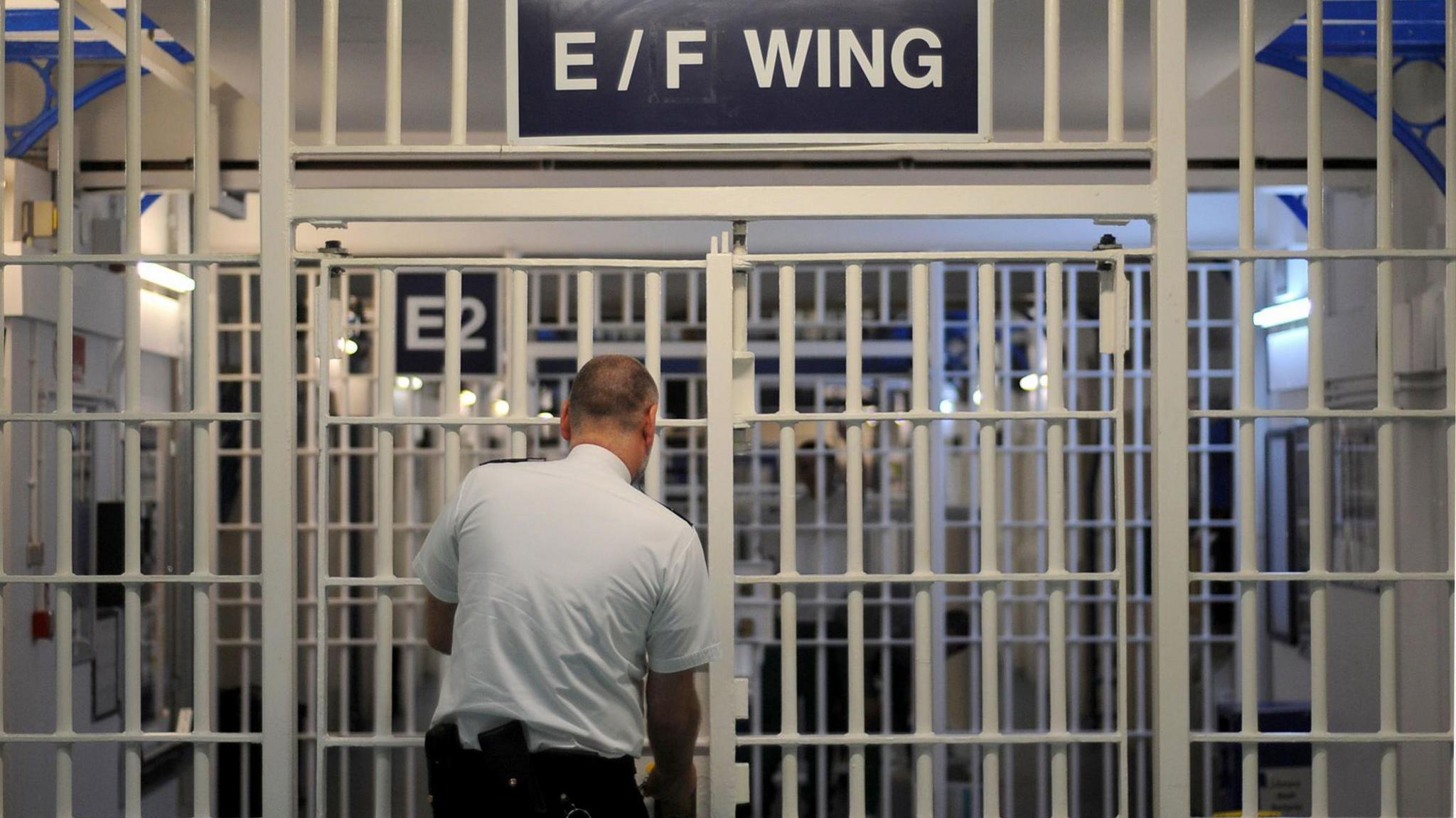
- Published9 September
